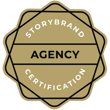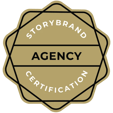How to Build a Sales Team: The 3 C’s of Hiring for Small Businesses
by Shawn Karol Sandy, on Dec 9, 2020 3:30:00 PM
With the age of the internet, we’ve all become self-diagnosing doctors with medical degrees from Google, right? We are able to search out our symptoms and try to self-medicate, self-prescribe...maybe even self-destruct.
When we finally seek out medical help we’ve either worked ourselves into a tizzy about the “worst case scenario” possibilities of our symptoms or we’ve let small problems become bigger problems because we tried to fix them ourselves.
This is not far from the painful pout at which I get a phone call from business owners—extremely frustrated and finally throwing their hands up after having tried to solve their sales problems themselves.
There are two scenarios in which a business owner calls us to talk about their sales team:
1. They have tried several sales hires and been unsuccessful with much if any traction on growing sales. After 3 – 4 months, sales hires quit and the business is out cash with no sales to show for it.
2. They have a handful of sales people and are finding it excruciatingly painful to manage, incent, and coach them in a way that produces consistent results.
Both are frustrating and come with a large price tag: time and opportunity lost—plus investment in labor without an ROI.
If this feels deeply and personally familiar, I’d like to share with you how we head off those two frustrating circumstances.
Those sales scenarios we describe above have a root cause that begins with the decision to hire a sales force. Most businesses immediately look for sales people within their own network—searching for people with industry experience, or experience in a sales role. Not a terrible idea. Just not where we start.
To build a High Performing Sales Team, Start With a Thorough Job Analysis
Do this by asking questions centered on “The Three C’s”: Customer, Culture, and Character.
Your Customers
- Are you building a sales team to sell to your existing customers or a new target market?
- What is the professional day like for your buyers?
- In what context are you relevant to the buyer?
- What does it take to reach these customers?
- Where are they searching for answers or information to make decisions?
- What is the typical level of expertise or education level your buyer has regarding your product or industry?
Your Culture
- What kind of organization are you building?
- How independently will your sales team need to work?
- Will your sales team interact with your entire organization or contribute to the overall culture?
- What is the future growth mindset of the organization and how do new sales hires fit that vision?
- What kind of support will your organization give to the sales team and their efforts? (Marketing, lead generation, sales administration, operations, et cetera)
Their Character
- What cognitive skills are key for this role and how do you evaluate them?
- Do they have previous experience that aligns with your target customers?
- Do they have an existing network to help close the prospecting gap?
- What personality traits are necessary?
- For the buyers (highly perceptive, diplomatic, collaborative)
- For the pace of the sales cycle (fast pace, learns quickly, steady, consistent, or persistent)
- For cohesion with the culture and existing team? (high energy, independent, collaborative)
Before you start looking to hire someone and get stuck with just anyone, conduct a thorough job analysis to determine not just what you’re looking for in a sales candidate, but how your sales program will grow and progress—how the sales organization fits into your existing business and future vision.
There are many types of sales infrastructures, compensation plans, and sales roles. Strategically plotting the sales program so the strategy aligns with your hires and execution plan will save you much time and frustration (not to mention gray hairs and money).
This type of assessment is usually difficult to do from within the organization.
You, as the owner are busy wearing a dozen hats and “Sales Director” is probably the last hat you put on and the one you wear the least. Combine that with myopia about our own businesses and customers and you get a short-sighted, half-baked strategic picture.
Even if you don’t pursue additional help with the strategy and sales process execution, if you’re struggling with your existing sales team or perplexed about how to build a successful sales organization,
Get an Outside Perspective on Building a High-Growth Sales Team
Ready to get clarity with a Job Analysis that sets you up to add the right talent to your team? Reach out to us to discuss your growth plans and how your sales program can be built for success.
.webp?width=12693&height=4513&name=Sauce%20Logo%20Dark%20Ht%20(1).webp)

.webp?width=180&height=64&name=Sauce%20Logo%20Dark%20Ht%20(1).webp)












